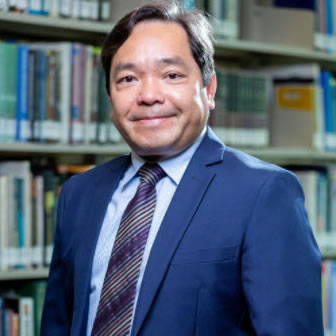Could COVID drive a rethink on the internalisation of higher education?
 Prof. Joshua Ka Ho Mok, Lingnan University, Hong Kong
Prof. Joshua Ka Ho Mok, Lingnan University, Hong Kong
The COVID-19 pandemic is presenting the internationalised model for higher education with unprecedented challenges. In his keynote address to the confererence, Joshua Ka-ho Mok, Lingnan University’s Vice-President and, concurrently, Lam Man Tsan Chair Professor of Comparative Policy, examined the ways in which COVID-19 could change the future of cross-border student mobility.
During the last 20 years, students have been increasingly on the move around the globe. In that time, in East Asia and the Pacific region, the number of students seeking education abroad has more than tripled to an annual figure of over 1,400,000. While the number of students travelling to study in the UK has almost doubled, to over 440,000.
“But even before the global pandemic, people had begun to talk about issues in the area of the internationalisation of higher education,” Prof Mok pointed out. He noted that this is despite the development of a wide-spread belief that a trans-national education can enhance a student’s job prospects and career development. “The problem is: who can enjoy an international education?”
Critics have claimed this phenomenon favours only the wealthy elites in society and disadvantages groups with low socioeconomic status. This year’s campus closures and requirements for social isolation are reckoned to have only exacerbated the inequity.
During the pandemic, many students have suffered emotional and psychological upheavals, along with the disruption to their studies. East Asian students studying in Western countries have also experienced heightened levels of antagonism, often due to cultural differences in areas such as mask wearing.
A British Council survey of 11,000 Mainland students considering studying in the UK, that was conducted in April of this year, found 79 percent of them were very concerned about their health and well-being, 87 percent were very concerned about personal safety, and 86 percent are worried about their finances.
While a research project led by Prof Mok in May, questioned 600 international, or non-local, higher education students from six continents, and found 46 percent agreed or strongly agreed with the proposition they were lonely. They were fairly evenly split on whether they felt satisfied or dissatisfied with the quality of the education they had received during the pandemic.
When it comes to finance, Prof Mok cited OECD work that found around 32 percent of total expenditure on tertiary institutions is sourced from the private sector, with the ratio in Australia almost double that, at around 62 percent. Any significant drop in the income from fee-paying international students will therefore seriously impact the stability of institutions in countries where there is relatively-low levels of public funding. Educators do have to be careful, however, that they strike an ethical balance between financial and health concerns when it comes to opening up campuses and encouraging students to return.
Geopolitics will also affect the future internalisation of higher education, he noted, with the deteriorating relationship between China and Western liberal democracies likely to have a negative impact.